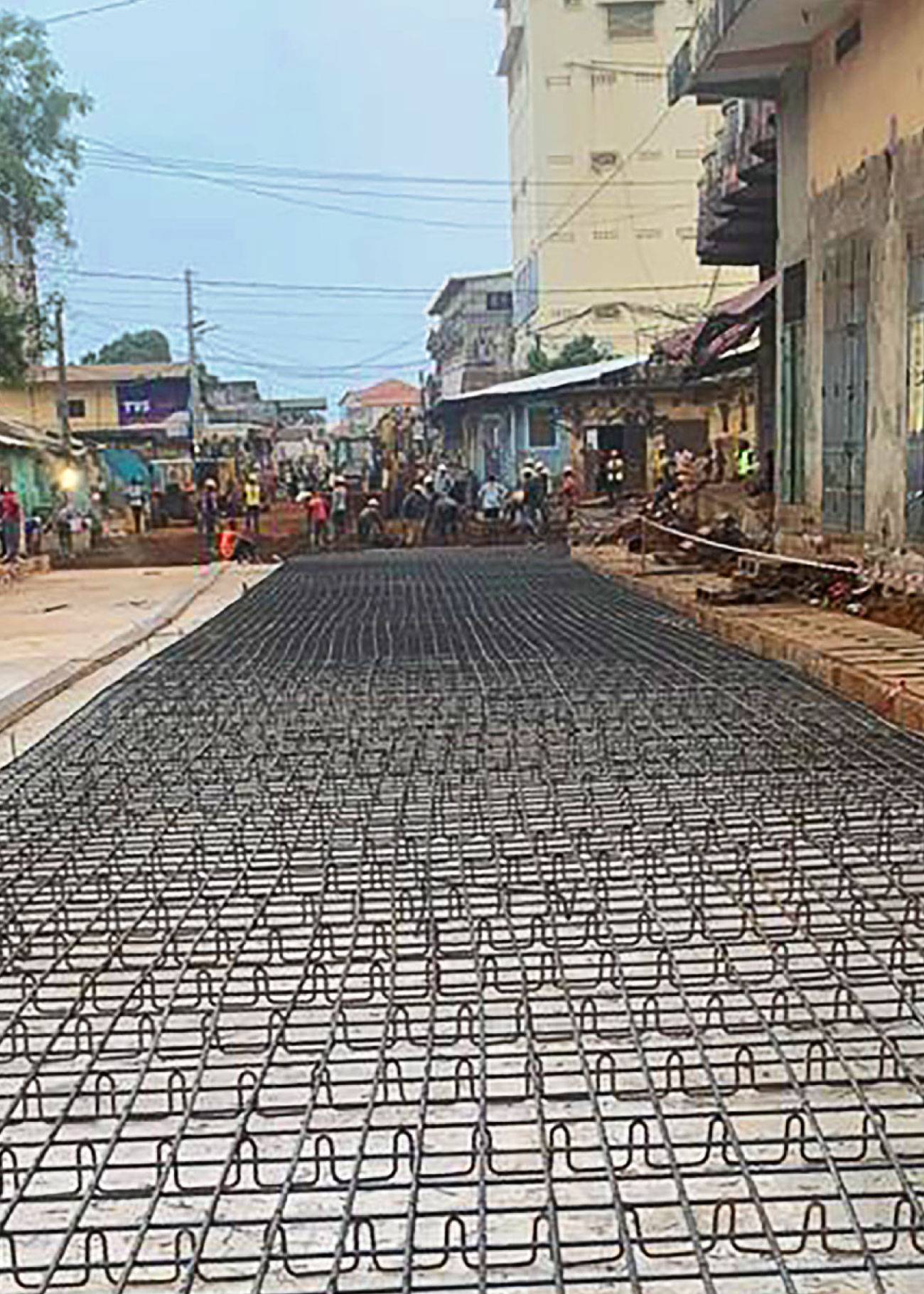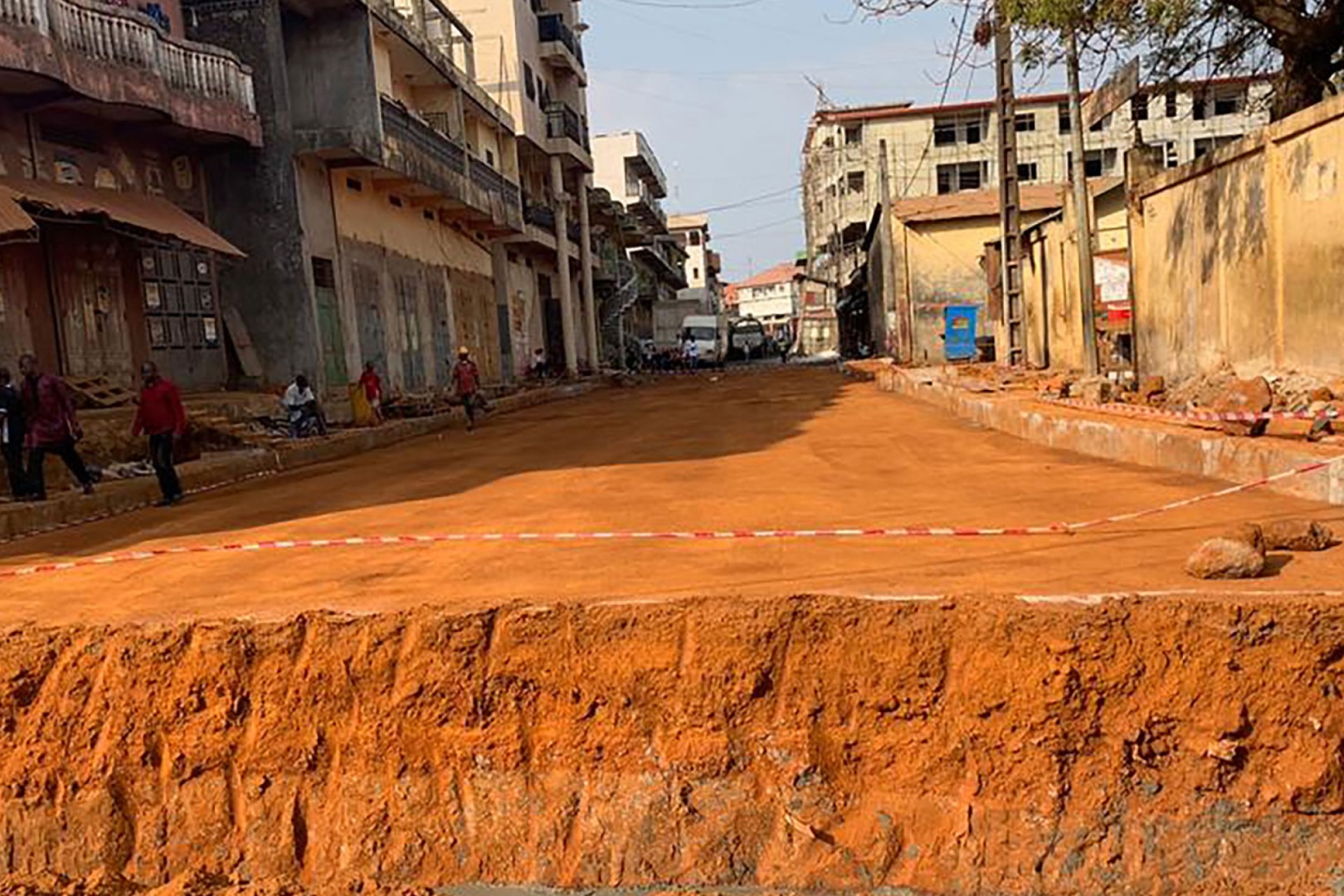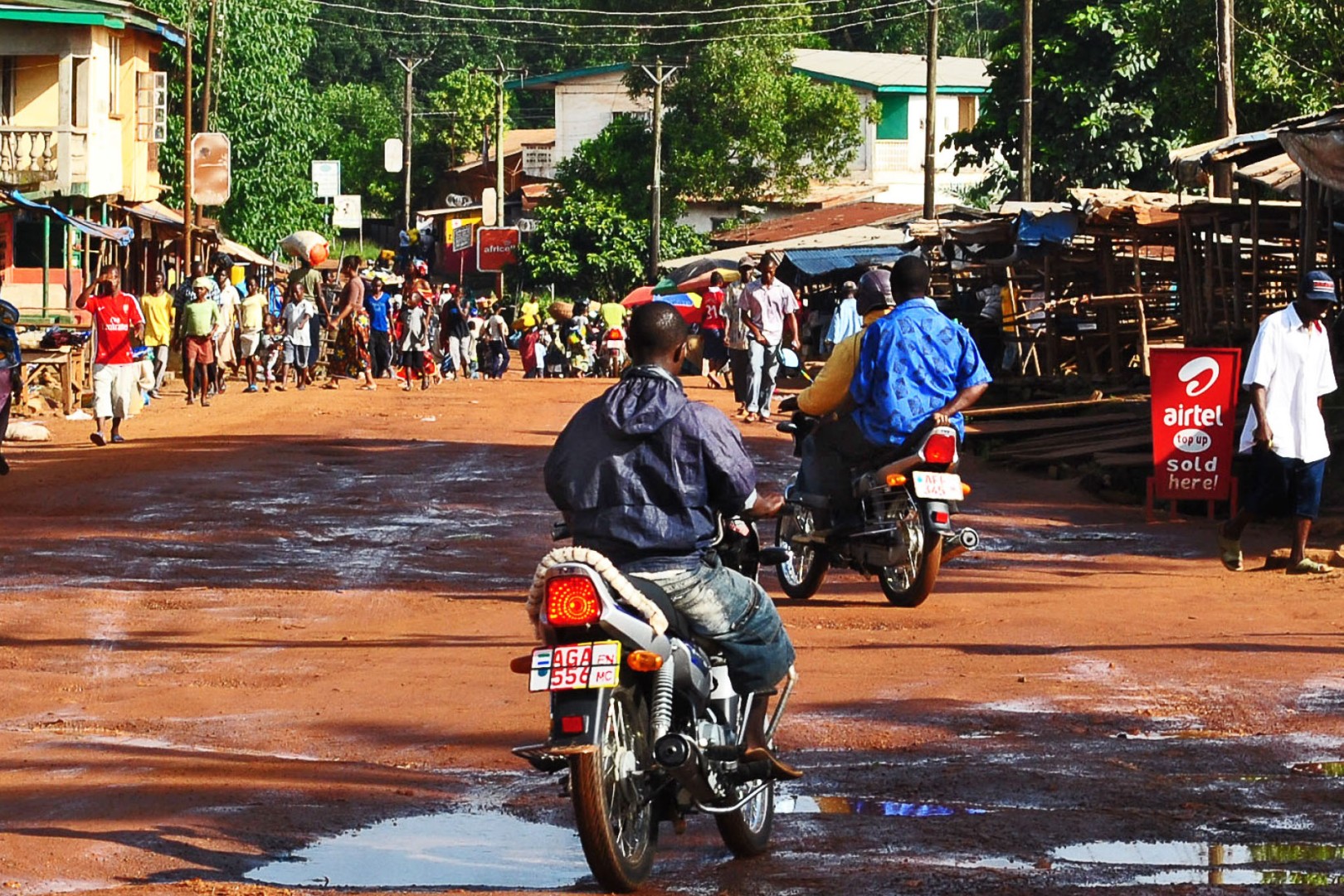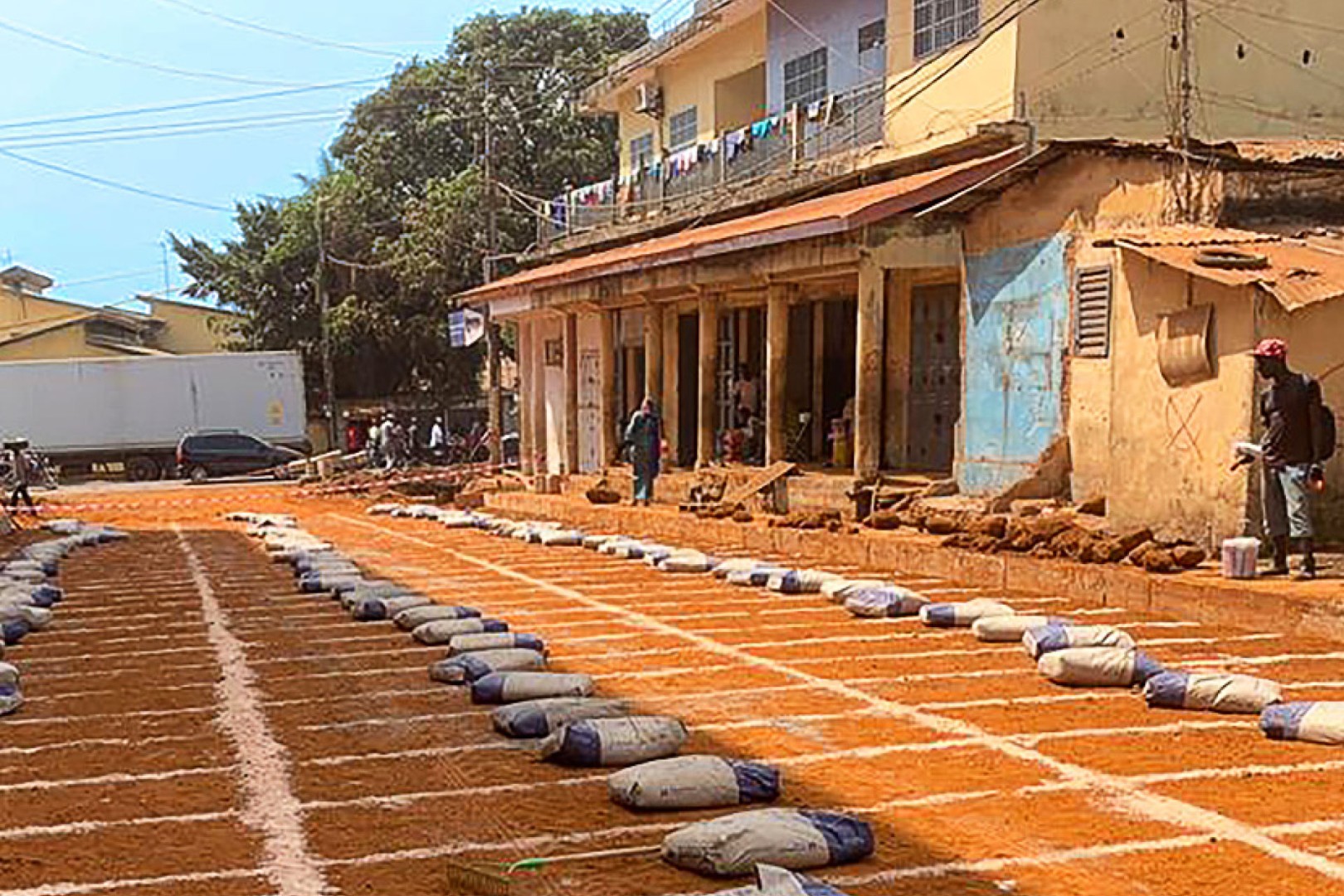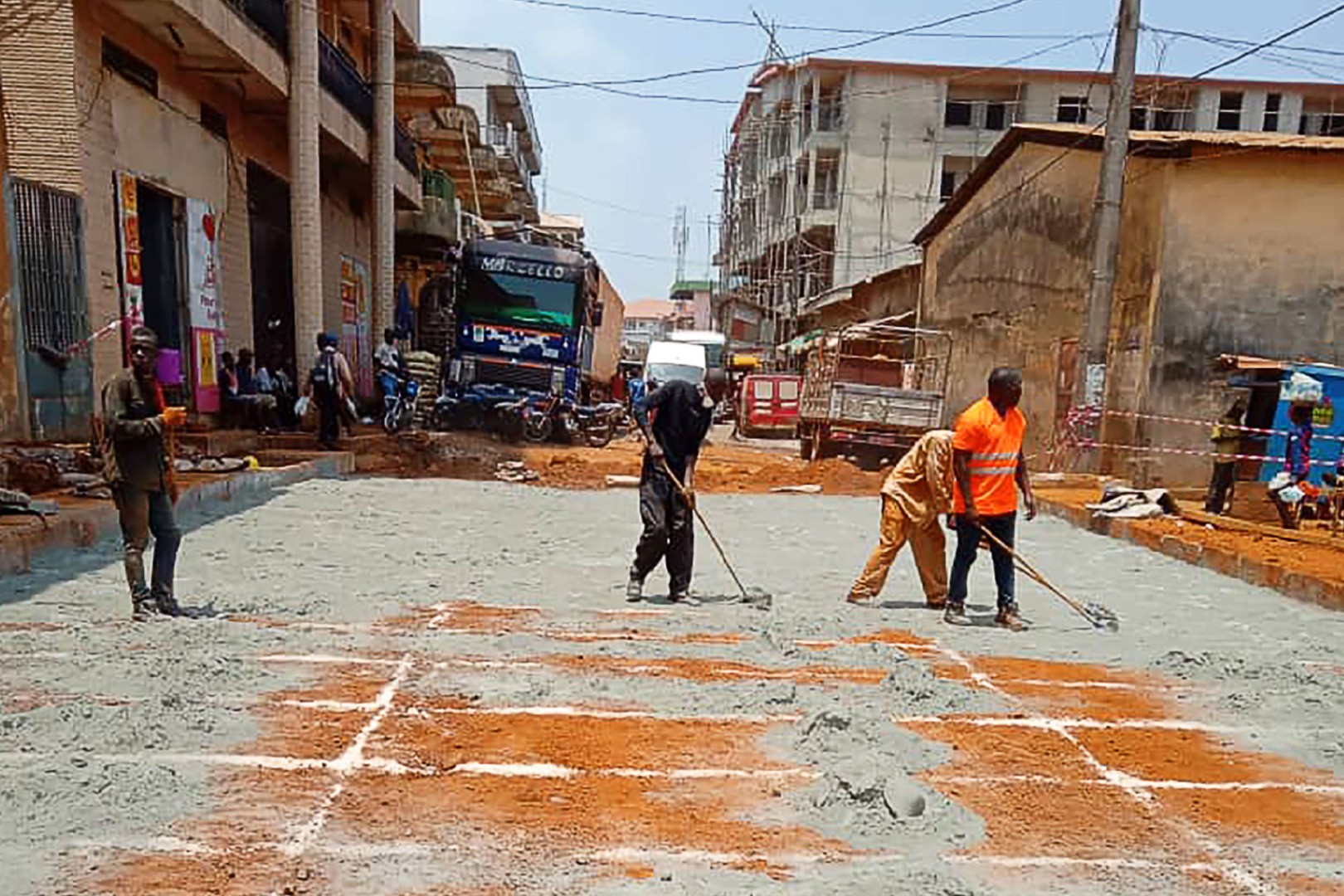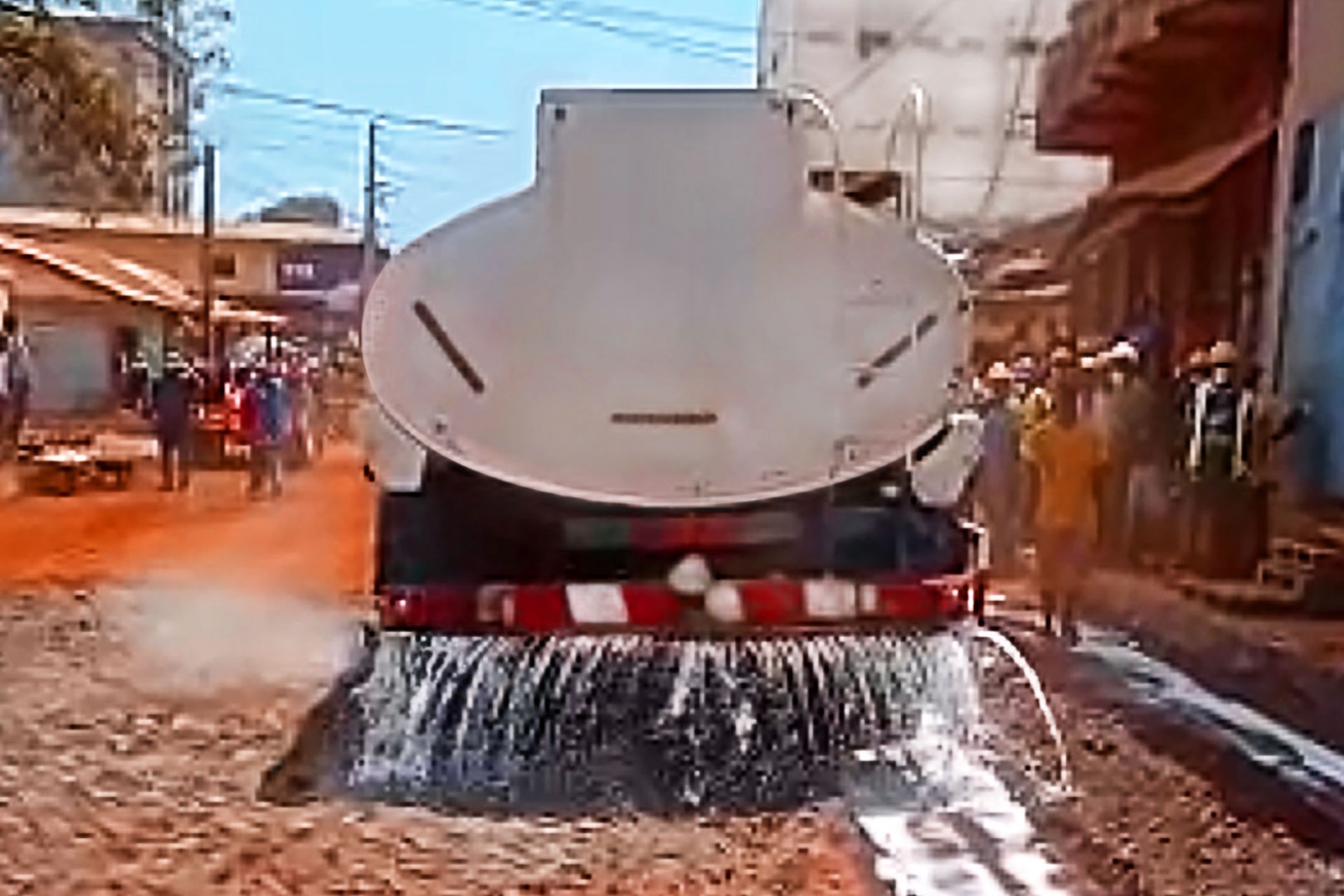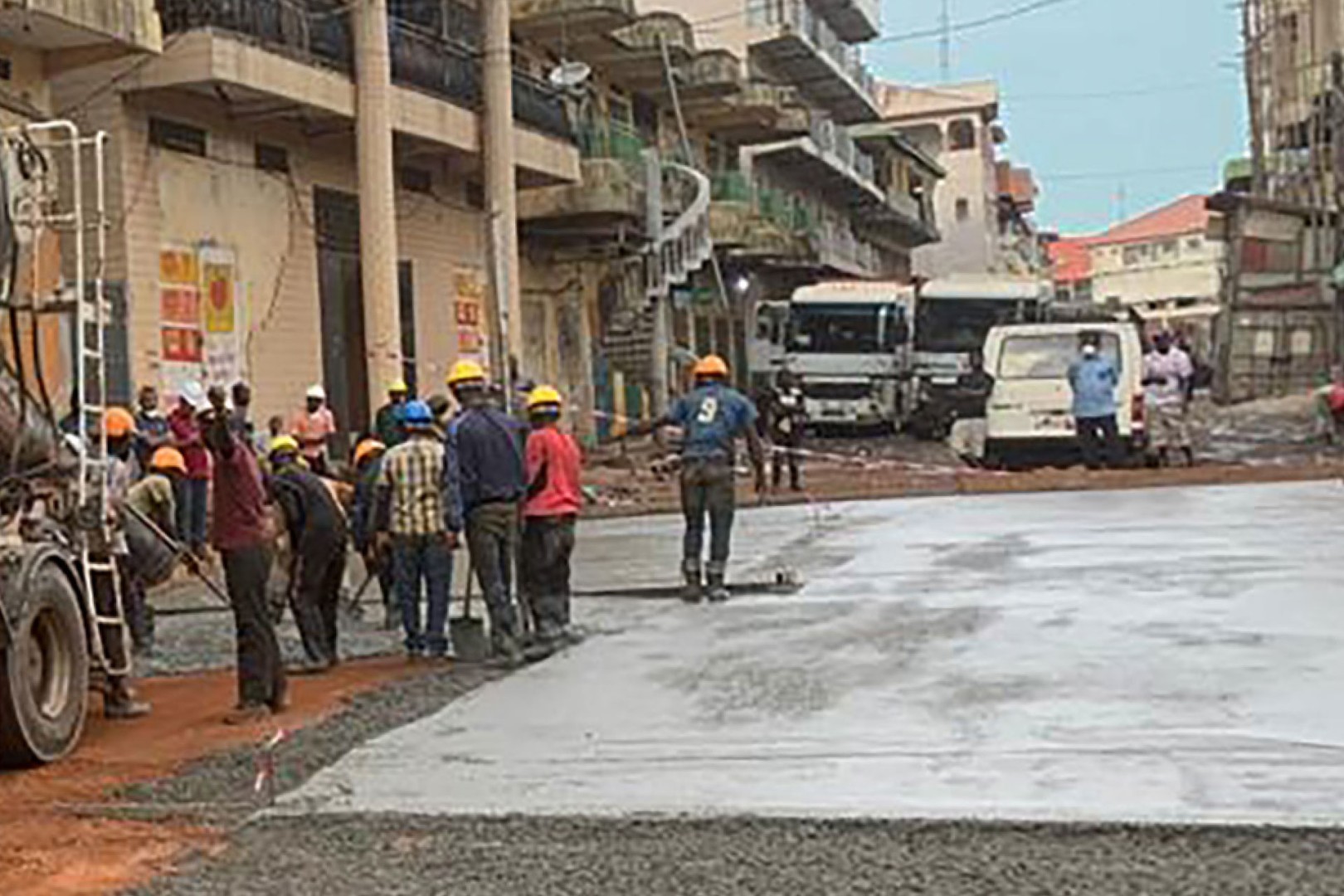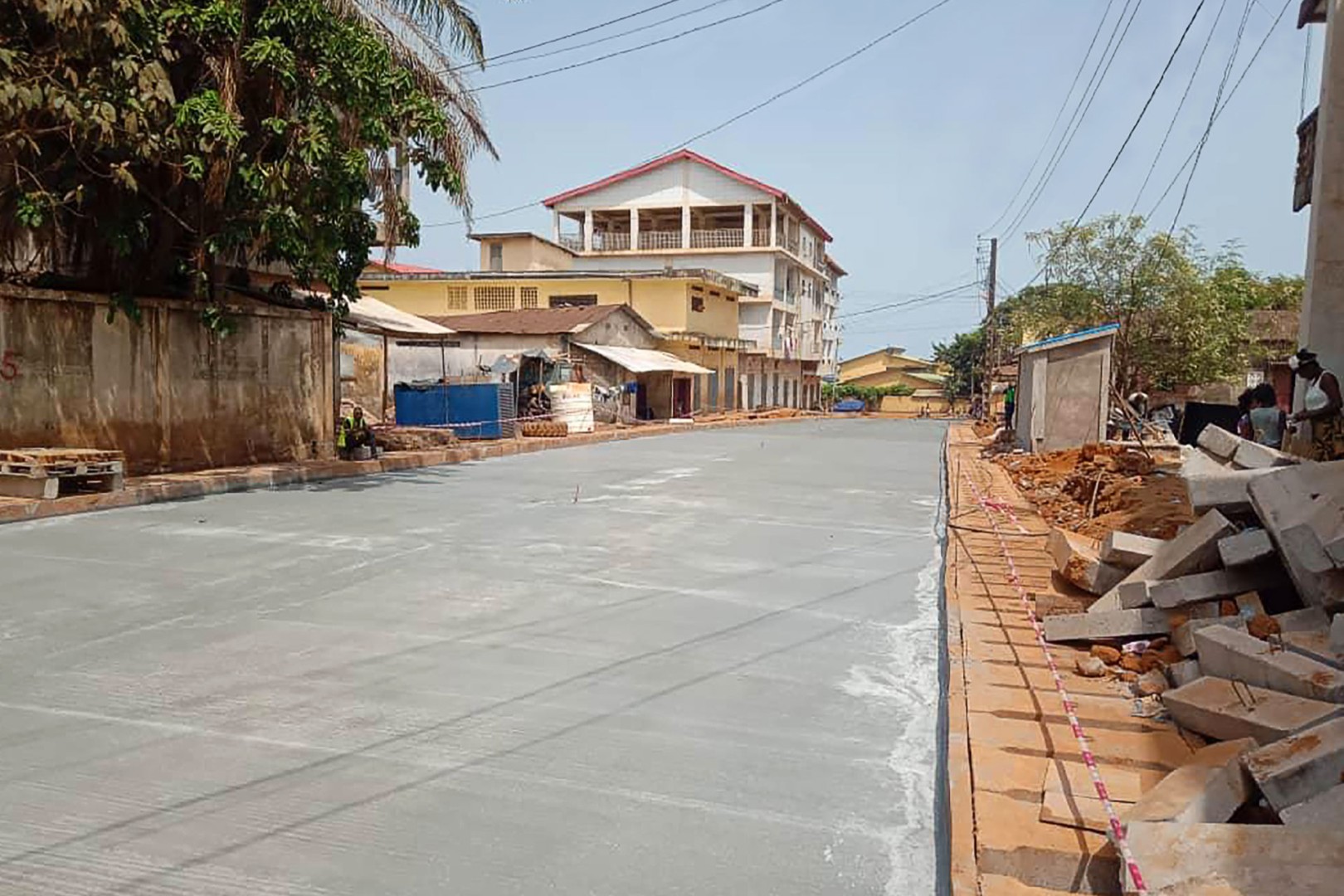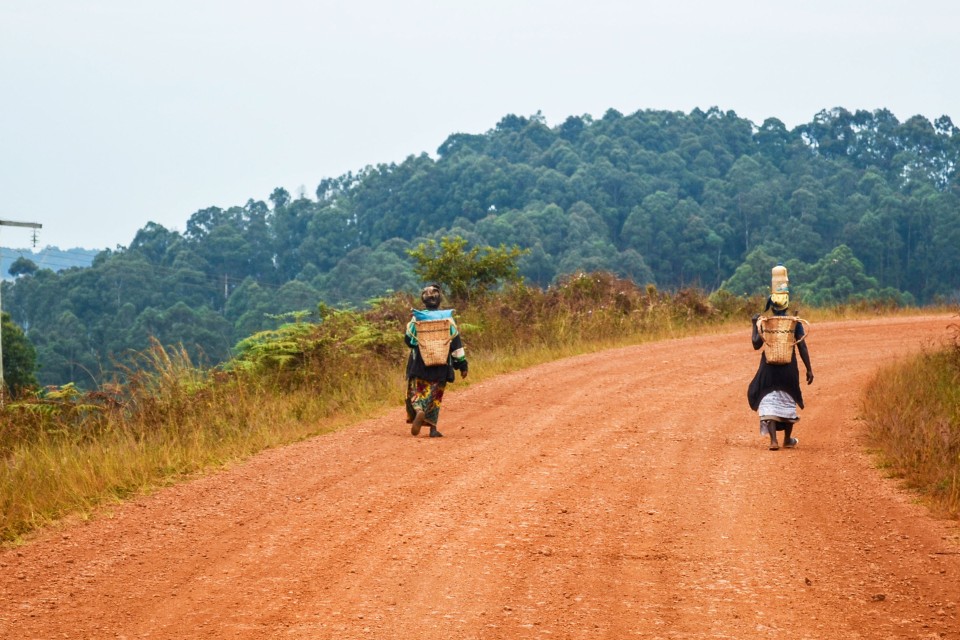
Road Construction in West Africa
Feb 02, 2021 Read time: approx. MinutesMinute
Solid, but Flexible
Laterite is a reddish soil that is widely encountered in tropical regions and is popular for building roads. The load-bearing capacity, resistance and service life of such roads can be greatly increased by simultaneously incorporating cement and a polymeric dispersion into the soil. A trio of companies from Germany, New Zealand and West Africa has just demonstrated this in a joint project conducted in Guinea.
The challenges facing road-builders in many equatorial countries are many and varied: warm, humid tropical air; high rainfall levels and thus high water tables; intense UV radiation and elevated temperatures that cause the soil to dry out quickly and turn to dust; and road networks that are often no more than compacted earth that is quickly undermined or washed away during downpours. The situation in Guinea, West Africa, is no different. Clearly, roads exposed to such detrimental effects need to be strengthened so that they can cope with all these loads and be repaired less frequently.
With applications like this in mind, WACKER joined forces with Gravel Lock NZ Ltd., a New Zealand-based supplier of building materials, to develop a soil stabilizer based on ETONIS® polymeric dispersion and various additives that can be used in conjunction with cement.
Solid, but Flexible
Mixing cement with gravel, sand and water produces concrete, a high-strength building material. However, concrete is also brittle and prone to cracking and that makes its use in road building particularly problematic. Nevertheless, if a polymeric dispersion such as ETONIS® 1400 S is applied to the earth, it will develop binding forces between the particles of earth or aggregate on the one hand and the particles of hydrated cement on the other. ETONIS® 1400 S is responsible for the long, molecular structural bonds that link the mixture of earth, aggregate, cement and polymer together – the outcome is a durable, water-resistant material that is solid, but flexible.
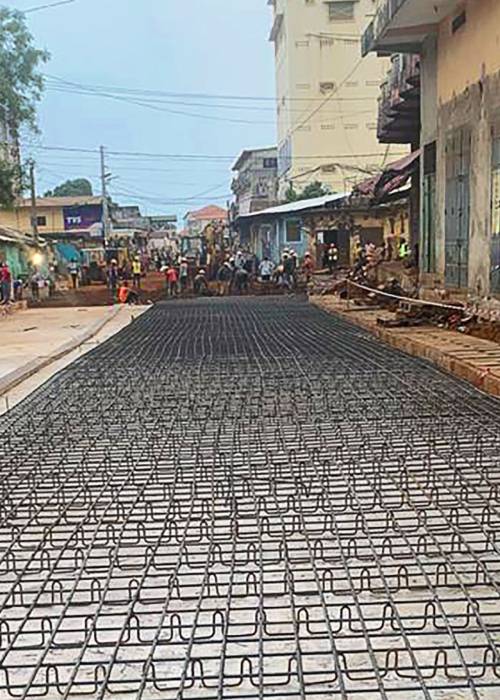
The concrete surface course is reinforced with steel – this is a complex solution that speaks to the high quality of the road structure.
“The flexibility removes the brittleness from the stabilized layer, a fact which is reflected in much-improved flexural strength.”
Badarul Faruqui, Sales Manager
“The rehabilitated road will thus last longer and maintenance costs will be lower over the long term”, explains Badarul Faruqui, the Dubai-based sales manager for Construction Polymers for the Middle East and Africa (MEA) region.
The performance capability of the ETONIS® 1400 S soil stabilizer was recently demonstrated in a pilot project conducted in West Africa by WACKER POLYMERS and Gravel Lock in conjunction with Topaz Multi Industries, a local paints and coatings company. The project concerned the resurfacing of 7,000 square meters of road in the urban sub-prefecture of Matam in Guinea – and it was completed in just two weeks.
A Need for Speed
“One of the challenges was that the road is located near a busy market. Naturally, we didn’t want to close the entire area for months of construction work,” emphasizes Faruqui.
The advantage of the technology is that it combines several complex and cost-intensive work steps into one. The soil is chopped up and a mixture of cement and polymer dispersion is worked in evenly, before being compacted and leveled with a roller.
ETONIS® 1400 S yields very good results particularly in combination with the widespread, usually reddish laterite soil (from Latin later meaning brick) that is formed by persistent weathering of the underlying rock in tropical regions such as Guinea. “The polymeric dispersion boosts the resistance and load-bearing capacity of the laterite to a multiple of what it was before,” stresses Faruqui.
The road construction company managed to complete the project in Guinea much earlier than planned, due to the rapid curing of ETONIS® 1400 S and the cement. In addition, the binder protects the road from penetration by groundwater. This is a constant problem in tropical countries that have high rainfall levels and water tables.
This project is a major milestone for our Construction Polymers business and reflects our strategy of developing new business fields.
Christian Montaldier, Regional Business Manager for Polymers
Online Advice
The project was commissioned at the start of this year, just as global travel restrictions due to the coronavirus pandemic came into effect. On-site support by WACKER technical service engineers was therefore not possible. For this reason, the WACKER POLYMERS team in Dubai, UAE, which has responsibility for marketing on the African continent, provided online technical support for the duration of the project. The technical staff in Guinea and Dubai shared the results of various tests and soil analyses electronically and then held discussions about possible adjustments to the dosage. The original plan had been to complete the project in three to four days. Even though an online approach had to be adopted, the project was completed in just two weeks.
“We are very pleased with the results,” says Dr. Bhana Sidibe, site engineer at Topaz Multi Industries. “Stabilizing the soil with ETONIS® 1400 S makes the subgrade more compact and resistant, and suppresses dust formation.”
Showcase for Further Projects
“This project is an important milestone for our Construction Polymers business and is in line with our strategy to develop further opportunities outside our main focus on the dry-mix mortar industry," says Christian Montaldier, regional business manager for Polymers in MEA. “With the ongoing soil stabilization projects in Kuwait and sub-Saharan Africa, this success in Guinea gives us the confidence to accelerate and expand our activities in the new segments.”
Mr. Badarul Faruqui
Sales Manager Wacker Chemicals Middle East
WACKER SILICONES
+971 4 7099-953
badarul.faruqui@wacker.com



